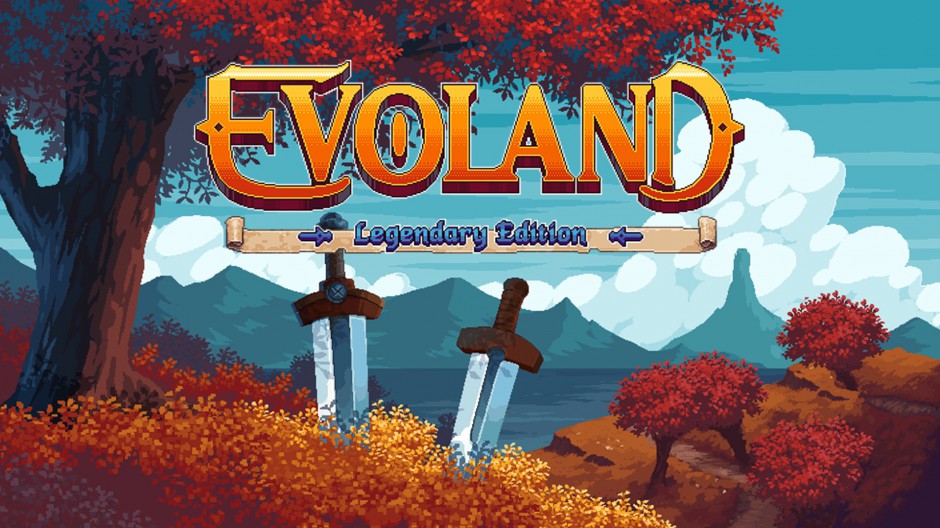
Still, given how much the game is actually juggling, it’s easy to forgive most of its quirks. This game is screaming for some kind of dash or run button. It’s hardly a unique problem among games that try to do what Zelda seems to so effortlessly, but it’s particularly bad here due to the plodding pace of the main character. You’ll be doing a fair bit of backtracking in the game, both on a smaller scale to solve puzzles and on a larger scale to find previously inaccessible secrets. It’s only a few hours long at most, and while that’s very short for an RPG and somewhat short for an action-adventure game, it’s almost a little bit too long for Evoland. Similarly, I completely understand its brief running time.

I think it might err a little bit too much on the side of caution, especially with its JRPG-style sections, but I can appreciate what it’s going for in that regard. It wants you to see all of its content, and although it doesn’t want you to get bored, it doesn’t want you to get stuck, either. Overall, Evoland doesn’t put up much of a fight, even if you mean to find every secret and clear it completely.įrom a certain point of view, though, why should it? Evoland is, after all, sort of a museum tour through history. You’ll face a few bosses along the way, but if you’ve studied the important works of the genre, you won’t have much troubling figuring out how to beat them. The most difficult parts of the game happen during combat, particularly early on when you can’t take more than one hit. There are some secret treasure chests that sometimes require you to think a little bit harder, but the game goes pretty easy on you for the most part. About halfway through the adventure, it pulls its central theme into the puzzles, making for the most enjoyable sections of the game. They tend to fall on the simple side of things, with a lot of stepping on switches to open doors in other places, bombing cracked walls, and hitting targets with your arrows. In spite of these constant changes, the bulk of the game is spent solving puzzles similar to those found in the Zelda games. It’s an immediately impressive hook, calling similar feelings to mind as seeing an illustration come to life for the first time in Joe Dever’s Lone Wolf (Free). The whole style of the presentation will shift as you go along, too. It’s not just the gameplay that changes, though. It even dips its toe into Diablo-style action at one point. Sometimes the game plays like The Legend Of Zelda, while at other times it’s more like Final Fantasy ($7.99). There are treasure boxes strewn around the world, however, and many of them will change the rules of the game in dramatic ways. The game starts off in black and white and no sound, with nary a scrolling screen in sight. The basic premise of Evoland is that you’re following a loose timeline of the advances in RPGs over the years.

That game is now known as Evoland Classic, and while it shares a gimmick and a few beats with Evoland, the latter is considerably more fleshed out. Evoland is too short at times and too long at others.Įvoland grew out of an entry into a Ludum Dare competition where the theme was evolution. Then, having exhausted their bag of tricks and understanding that even a patient audience can get restless, things come to a swift, sweet finish. They ride out the previous trick for a while, perhaps too long. After a half hour or so of this, the designers must have realized that they had to space out their remaining cards so that the game wouldn’t be finished too quickly. At first they come at breakneck speed, not unlike the progress of gaming technology itself. Like an experienced stage magician running through his act, it has a brilliant set of tricks that it cleverly lays out one after the other, upping the ante each time to maintain your awe and excitement. It’s packed to the brim with genuine enthusiasm for my favorite genre and many great games of that genre and outside of it.


 0 kommentar(er)
0 kommentar(er)
